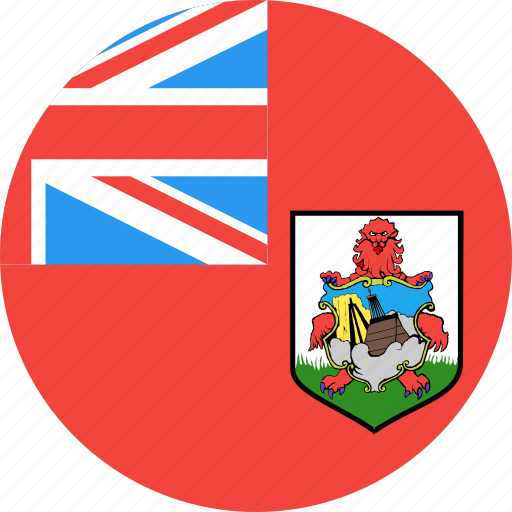Bermuda's status as a nation has long been a subject of curiosity and debate among historians, geographers, and political analysts. This small island chain in the North Atlantic Ocean possesses a distinct culture, history, and governance structure that sets it apart from many other territories. However, the question remains: Is Bermuda a nation? This article delves into the complexities surrounding Bermuda's political status, historical background, and cultural identity to provide a comprehensive answer to this intriguing question.
Bermuda's unique position as a British Overseas Territory offers a fascinating case study in the realm of geopolitics. Understanding its status requires an exploration of its relationship with the United Kingdom, its governance system, and the aspirations of its people. This article aims to clarify these aspects while providing valuable insights into Bermuda's place in the global community.
Whether you're a history enthusiast, a traveler interested in Bermuda's attractions, or simply someone curious about geopolitical dynamics, this article offers a detailed examination of Bermuda's status. We'll explore its historical journey, current governance structure, cultural identity, and the factors that define its position in the world today.
Read also:Hdhub4u Bollywood Movies Hdhub4u
Table of Contents
- A Glimpse into Bermuda's History
- Understanding Bermuda's Political Status
- The Governance Structure of Bermuda
- Exploring Bermuda's Cultural Identity
- Bermuda's Economy: Key Sectors and Contributions
- Bermuda's Role in International Relations
- The Allure of Bermuda: A Popular Tourist Destination
- Demographics and Population Dynamics
- Education System in Bermuda
- The Future of Bermuda: Challenges and Opportunities
A Glimpse into Bermuda's History
Bermuda's history dates back to the early 16th century when it was first discovered by Spanish explorer Juan de Bermúdez in 1503. However, it wasn't until 1609 that English settlers, led by Admiral Sir George Somers, accidentally landed on the islands after their ship, the Sea Venture, was shipwrecked during a storm. This event marked the beginning of Bermuda's colonization by England.
Colonial Era and Early Development
During the colonial era, Bermuda developed as a key strategic location for British naval operations. Its location in the North Atlantic made it an important stopover point for ships traveling between Europe and the Americas. The island's economy initially relied on agriculture, particularly the cultivation of tobacco and other cash crops. Over time, Bermuda evolved into a hub for shipbuilding and maritime activities.
Key historical milestones include:
- 1612: Official establishment of the colony by the Virginia Company.
- 1684: Bermuda becomes a British crown colony.
- 1815: Bermuda becomes the headquarters of the Royal Navy in the Western Atlantic.
Understanding Bermuda's Political Status
The question of whether Bermuda is a nation is best understood through its political status. Bermuda is officially classified as a British Overseas Territory (BOT), a category that distinguishes it from independent nations. While it enjoys a significant degree of autonomy in internal affairs, its defense and foreign relations are managed by the United Kingdom.
Key Characteristics of Bermuda's Status
Bermuda's political status can be summarized as follows:
- It has its own constitution, established in 1968 and amended several times since.
- It operates under a parliamentary system with a bicameral legislature.
- It retains the British monarch as its head of state, represented locally by a Governor.
Despite not being a fully independent nation, Bermuda exercises substantial control over its domestic policies, including taxation, healthcare, and education. This hybrid status allows it to benefit from the protection and diplomatic support of the UK while maintaining its unique identity.
Read also:Vegamoviesms Anime Your Ultimate Destination For Highquality Anime Streaming
The Governance Structure of Bermuda
Bermuda's governance system reflects a blend of British traditions and local innovations. The island operates under a parliamentary democracy, with a Premier serving as the head of government. The legislative branch consists of two houses: the House of Assembly and the Senate.
Key Features of Bermuda's Governance
The governance structure includes:
- A bicameral legislature responsible for enacting laws.
- An independent judiciary that upholds the rule of law.
- A Governor appointed by the British monarch to represent the UK's interests.
This system ensures a balance of power and accountability, allowing Bermuda to address its unique challenges effectively. The Premier, elected by members of the House of Assembly, leads the government and oversees the implementation of policies.
Exploring Bermuda's Cultural Identity
Bermuda's cultural identity is a rich tapestry woven from its history, geography, and diverse influences. The island's population reflects a blend of African, European, and Indigenous heritage, creating a vibrant cultural landscape. Traditional practices, such as Gombeys dancing and Bermuda Day celebrations, highlight the community's pride in its heritage.
Cultural Traditions and Practices
Some notable cultural aspects include:
- Gombeys dancing: A traditional form of dance with roots in African and Indigenous cultures.
- Bermuda Day: An annual celebration featuring parades, music, and cultural performances.
- Cuisine: A fusion of local ingredients and international flavors, including fish chowder and cassava pie.
These traditions underscore Bermuda's distinct cultural identity, setting it apart from other territories and nations in the region.
Bermuda's Economy: Key Sectors and Contributions
Bermuda boasts a robust economy driven by key sectors such as international business, tourism, and financial services. The island is renowned as a global hub for insurance and reinsurance, attracting major corporations and generating significant revenue. Tourism, another vital sector, draws visitors from around the world who are captivated by Bermuda's natural beauty and cultural attractions.
Major Economic Sectors
The economy is characterized by:
- Insurance and reinsurance: Bermuda is a leading center for these industries, hosting major global companies.
- Tourism: The island attracts over half a million visitors annually, contributing significantly to GDP.
- International business: Many multinational corporations maintain operations in Bermuda due to its favorable tax environment.
These sectors collectively contribute to Bermuda's economic stability and prosperity, reinforcing its importance in the global economy.
Bermuda's Role in International Relations
As a British Overseas Territory, Bermuda plays a significant role in international relations. Its strategic location and economic influence make it a valuable partner for various nations and organizations. Bermuda participates in international forums and collaborates on issues such as climate change, maritime security, and economic development.
Key International Engagements
Bermuda's international relations include:
- Participation in the United Nations through the UK.
- Collaboration with regional organizations such as the Caribbean Community (CARICOM).
- Engagement in global initiatives addressing climate change and environmental conservation.
These engagements enhance Bermuda's global profile and demonstrate its commitment to contributing positively to international affairs.
The Allure of Bermuda: A Popular Tourist Destination
Bermuda's natural beauty and cultural richness make it a premier tourist destination. Visitors are drawn to its pristine beaches, historic landmarks, and vibrant cultural scene. The island offers a wide range of activities, from water sports and golfing to exploring its historic forts and museums.
Top Tourist Attractions
Some must-visit sites include:
- Bermuda Aquarium, Museum & Zoo: A hub for marine conservation and education.
- Horseshoe Bay Beach: Renowned for its pink sand and clear waters.
- St. George's Town: A UNESCO World Heritage Site with colonial architecture and historic sites.
These attractions, combined with Bermuda's warm hospitality, ensure a memorable experience for every visitor.
Demographics and Population Dynamics
Bermuda's population reflects a diverse mix of ethnicities and backgrounds. As of the latest census, the island is home to approximately 63,000 residents, with a majority identifying as African or mixed heritage. The population is relatively stable, with immigration policies designed to balance growth and sustainability.
Key Demographic Statistics
Notable demographic features include:
- Average age: Approximately 42 years.
- Life expectancy: Over 80 years, reflecting high living standards and healthcare access.
- Ethnic composition: Predominantly African and mixed heritage, with smaller European and Asian communities.
Understanding Bermuda's demographics provides valuable insights into its social dynamics and future development prospects.
Education System in Bermuda
Bermuda places a strong emphasis on education, with a system that combines local traditions with international standards. The island offers both public and private educational institutions, ensuring access to quality education for all residents. The curriculum incorporates elements of British and North American educational frameworks, preparing students for global opportunities.
Key Features of Bermuda's Education System
Highlights of the education system include:
- Compulsory education from ages 5 to 16.
- Access to higher education through local colleges and partnerships with international universities.
- Focus on STEM subjects and vocational training to meet economic demands.
This commitment to education equips Bermudians with the skills and knowledge needed to thrive in an increasingly interconnected world.
The Future of Bermuda: Challenges and Opportunities
As Bermuda looks to the future, it faces both challenges and opportunities. Key issues include maintaining economic stability, addressing climate change impacts, and preserving its cultural heritage. However, the island's strategic location, skilled workforce, and global connections position it well to navigate these challenges and capitalize on emerging opportunities.
Strategic Priorities for the Future
Key priorities include:
- Enhancing sustainability through green initiatives and renewable energy projects.
- Expanding digital infrastructure to support remote work and innovation.
- Strengthening partnerships with international organizations to address global challenges.
By focusing on these priorities, Bermuda can continue to thrive as a unique and vibrant community on the global stage.
Kesimpulan
In conclusion, the question "Is Bermuda a nation?" can be answered by understanding its unique status as a British Overseas Territory. While not a fully independent nation, Bermuda enjoys significant autonomy in its governance, economy, and cultural development. Its rich history, vibrant culture, and strategic importance make it a vital player in the global community.
We invite you to engage with this content by sharing your thoughts in the comments section below. If you found this article informative, please consider sharing it with others who may be interested in Bermuda's fascinating story. For more insights into global geopolitics and cultural dynamics, explore other articles on our site. Together, let's continue the conversation about the diverse and interconnected world we live in.


